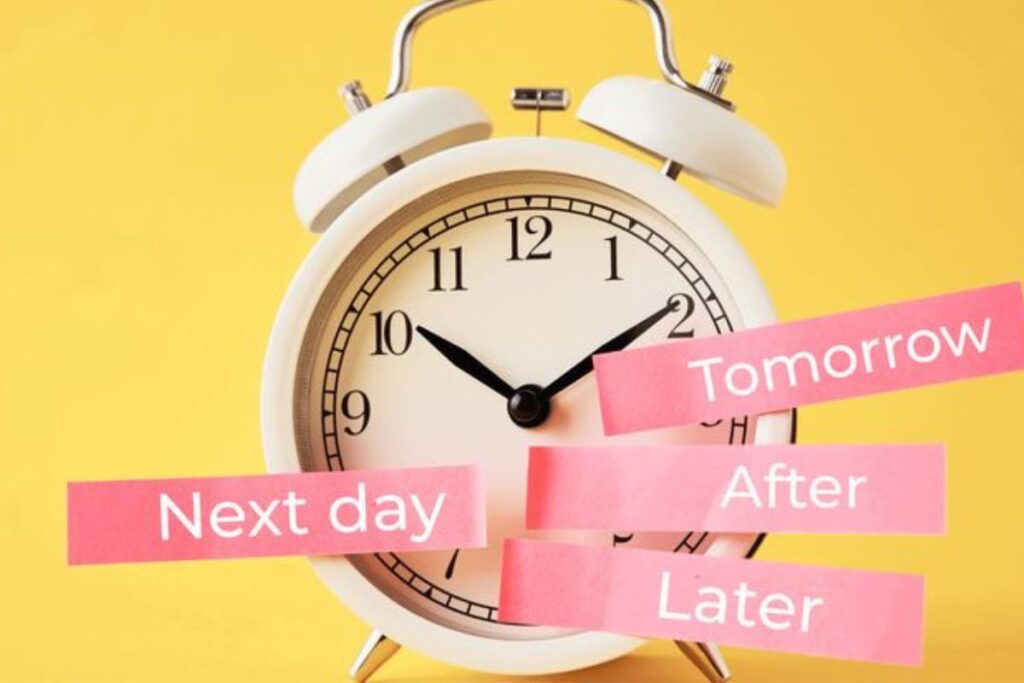
Procrastination isn’t just putting things off it’s that heavy mix of guilt, distraction, and I’ll do it later thinking that creeps in when you know you should be doing something else.
If you’ve ever Googled “How do I train myself to stop procrastinating?”, you’re not alone. It’s a question many of us ask not because we’re lazy, but because staying motivated in a world full of distractions is genuinely hard.
The good news? You can train yourself to overcome procrastination. Not overnight, not perfectly but consistently and realistically.
Table of Contents
How do I train myself to stop procrastinating?
Here’s a breakdown of what actually works:
You Don’t Postpone What You Truly Want to Do” – Sadhguru’s Insight
One of the most powerful pieces of advice I came across was from Sadhguru. He said:
“If you are postponing something, you are obviously doing something that you don’t want to do. If there is something that you really want to do, will you postpone it or prepone it? If you find that one thing you truly want to do, you will prepone everything, not postpone it.”
This shifted the way I think about procrastination.
We often blame ourselves for being lazy or undisciplined but maybe the deeper truth is this: we’re not connected to what we’re doing. We’re dragging ourselves through tasks that don’t excite us, inspire us, or feel aligned with who we are.
So instead of just forcing motivation, maybe the better question is:
“Is this something I really want to do or just something I think I should do?”
Because when you’re doing something you love, procrastination disappears. You prepone it. You make time for it. You find energy you didn’t know you had.
This doesn’t mean we can avoid all responsibilities but it does mean we should listen. If you’re constantly delaying something, ask yourself:
Is this really the path I want to walk?
What lights me up so much that I don’t want to wait for it?
The moment you find that one thing, Sadhguru says, you’ll stop postponing and start preparing.
Understand why you procrastinate
Before you fix it, you have to understand it. Procrastination usually isn’t about being lazy. It often comes from:
- Fear of failure or not being good enough
- Feeling overwhelmed by the task
- Lack of clear direction or motivation
- Perfectionism (waiting for the “right” moment)
Ask yourself: Why am I avoiding this?
That simple question can uncover what’s really going on and that awareness is the first step toward changing it.
Break Tasks Down (Like, Really Small)
One of the most effective anti-procrastination tricks? Make the task so small it’s hard to resist.
Instead of:“Finish the report”
Try:“Write the first sentence of the report”
The goal is to make starting stupidly easy. Momentum builds once you begin.
Two Timeless Principles That Can Help You Beat Procrastination
When you’re trying to train yourself to stop procrastinating, mindset shifts help but so do smart principles that guide how you spend your time. Two of the most effective are:
1. Parkinson’s Law: Work Expands to Fill the Time Available
This principle says:“Work expands to fill the time available for its completion.”
In simple terms, if you give yourself a week to finish a 2-hour task… it’ll take a week.
The fix? Set shorter, artificial deadlines.
When you shrink the time you allow for a task, you naturally cut out distractions, focus faster, and finish quicker.
Try this: Give yourself 30 minutes to write that email, finish the draft, or do that report. You’ll be surprised how fast you work under pressure especially when it’s self-imposed.
2. Pareto Principle (80/20 Rule): Focus on What Matters Most
The Pareto Principle states:“80% of results come from 20% of the effort.”
Not all tasks are equal. Most of what we do in a day doesn’t actually move the needle. That’s where procrastination loves to hide in busywork.
Try this: Identify the 20% of tasks that generate 80% of your impact, and start your day with those. Do them first, and you’ll often find that the rest of the day feels lighter, more productive, and less overwhelming.
Cut One Distraction (Not All)
You don’t have to become a monk just remove one thing that tempts you the most.
- Put your phone in another room
- Close extra tabs
- Turn off notifications for 30 minutes
Even one barrier between you and your distractions can make a difference.
Build a Routine You Can Actually Stick To
One of the most effective ways to overcome procrastination is to create a repeatable routine a structure you can follow consistently, without burning out.
But here’s the key:Don’t just fill your routine with responsibilities. Include the things you love too.
Make space for your favorite activities whether it’s reading, music, walking, or anything that brings you joy. When your day feels balanced and enjoyable, you’re more likely to stay consistent.
Start by choosing a specific time block for focused work say, one hour in the morning or evening. During this time, commit to your most important task of the day.
Then slowly, increase that focused time, as your ability to sit with deep work improves.
Forgive Yourself When You Slip
You’re going to procrastinate again and that’s okay. You’ll have days where you meant to start early but didn’t. Tasks will get pushed, energy will dip, and motivation will vanish. It doesn’t mean you’re lazy or broken. It means you’re human.
The real danger isn’t the procrastination itself it’s the guilt that follows. That voice that says, “You always do this. You’re never going to change.” But shame doesn’t lead to progress. It leads to more avoidance.
Instead, meet yourself with compassion. Pause. Take a breath. Remind yourself: “I slipped, but I can begin again.” One bad hour doesn’t cancel the whole day. One off day doesn’t erase your effort.
Progress isn’t about being perfect it’s about being kind enough to keep going. Small resets, again and again, build more than any burst of perfect productivity ever will.
You’re not here to win every moment. You’re here to learn, adjust, and show up for what matters even after you fall. That’s not weakness. That’s strength.
So the next time you catch yourself slipping, don’t punish yourself. Reset gently. That’s the real skill worth practicing.
One wasted hour doesn’t mean a wasted day. One off day doesn’t mean failure.
Just reset. Start again. No drama.
FAQs: How to Stop Procrastinating
1. Is procrastination just laziness?
No. Procrastination is rarely about laziness. It’s usually tied to:
- Fear of failure
- Feeling overwhelmed
- Perfectionism
- Lack of clarity or motivation
Understanding the root cause helps you respond with compassion instead of self criticism.
2. What if I don’t feel motivated to do something?
Ask yourself:
“Do I truly want to do this or just feel like I should?”
Sadhguru points out that we don’t procrastinate things we truly want to do we prepone them. If you’re always postponing something, it may not align with your core desires or values.
3. How do I overcome fear of starting a big task?
Break it down into tiny steps.
Instead of: “Write the report,”
Try: “Open the document,” or “Write the first sentence.”
Start small to build momentum.
4. How can I trick myself into being more productive?
Use two powerful principles:
- Parkinson’s Law: Set tighter, self-imposed deadlines.
- Pareto Principle (80/20 Rule): Focus on the 20% of tasks that create 80% of your results. Prioritize those.
5. What are some quick fixes I can try right now?
- Cut one distraction (e.g., put your phone away, disable notifications).
- Use a timer (e.g., Pomodoro: 25 minutes on, 5 minutes off).
- Change your environment — sometimes a different location changes your mindset.
6. How do I stay consistent without burning out?
Build a routine that includes both work and joy.
Balance your schedule with things you have to do and things you love to do. This keeps your energy up and your resistance down.
7. What if I keep failing and falling back into old habits?
Forgive yourself quickly.
One bad hour doesn’t mean a bad day. One unproductive day doesn’t erase your progress. Reset without drama. That’s the key to building long-term resilience.
Also read:Powerful Deep Meditation Techniques for Inner Peace and Clarity
Hi, I’m Swaraj Das a registered pharmacist by profession and a passionate blogger at heart. I love writing about wellness, spirituality, uplifting lifestyle tips, practical life lessons, and inspiring stories. Through my words, I aim to bring clarity, motivation, and well being to everyday life.


